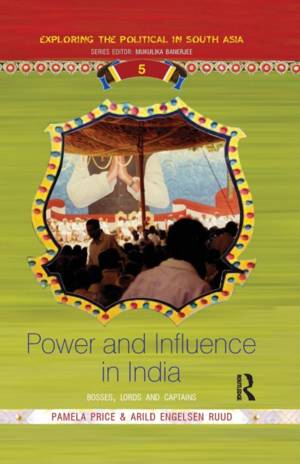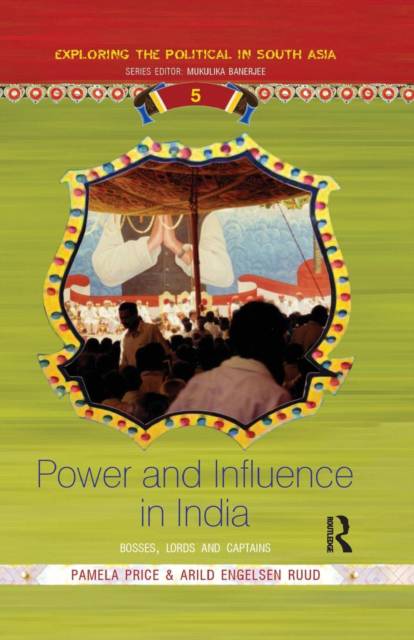
- Afhalen na 1 uur in een winkel met voorraad
- Gratis thuislevering in België vanaf € 30
- Ruim aanbod met 7 miljoen producten
- Afhalen na 1 uur in een winkel met voorraad
- Gratis thuislevering in België vanaf € 30
- Ruim aanbod met 7 miljoen producten
Power and Influence in India
Bosses, Lords and Captains
Omschrijving
Taking cognisance of the lack of studies on leadership in modern India, this book explores how leadership is practiced in the Indian context, examining this across varied domains -- from rural settings and urban neighbourhoods to political parties and state governments.
The importance of individual leaders in the projection of politics in South Asia is evident from how political parties, mobilisation of movements and the media all focus on carefully constructed personalities. Besides, the politically ambitious have considerable room for manoeuvre in the institutional setup of the Indian subcontinent. This book focuses on actors making their political career and/or aspiring for leadership roles, even as it also foregrounds the range of choices open to them in particular contexts. The articles in this volume explore the variety of strategies used by politically engaged actors in trying to acquire (or keep) power -- symbolic action, rhetorical usage, moral conviction, building of alliances -- illustrating, in the process, both the opportunities and constraints experienced by them.
In taking a qualitative approach and tracking both political styles and transactions, this book provides insights into the nature of democracy and the functioning of electoral politics in the subcontinent.
Specificaties
Betrokkenen
- Uitgeverij:
Inhoud
- Aantal bladzijden:
- 254
- Taal:
- Engels
- Reeks:
Eigenschappen
- Productcode (EAN):
- 9781138664913
- Verschijningsdatum:
- 21/01/2016
- Uitvoering:
- Paperback
- Formaat:
- Trade paperback (VS)
- Afmetingen:
- 140 mm x 216 mm
- Gewicht:
- 335 g

Alleen bij Standaard Boekhandel
Beoordelingen
We publiceren alleen reviews die voldoen aan de voorwaarden voor reviews. Bekijk onze voorwaarden voor reviews.








